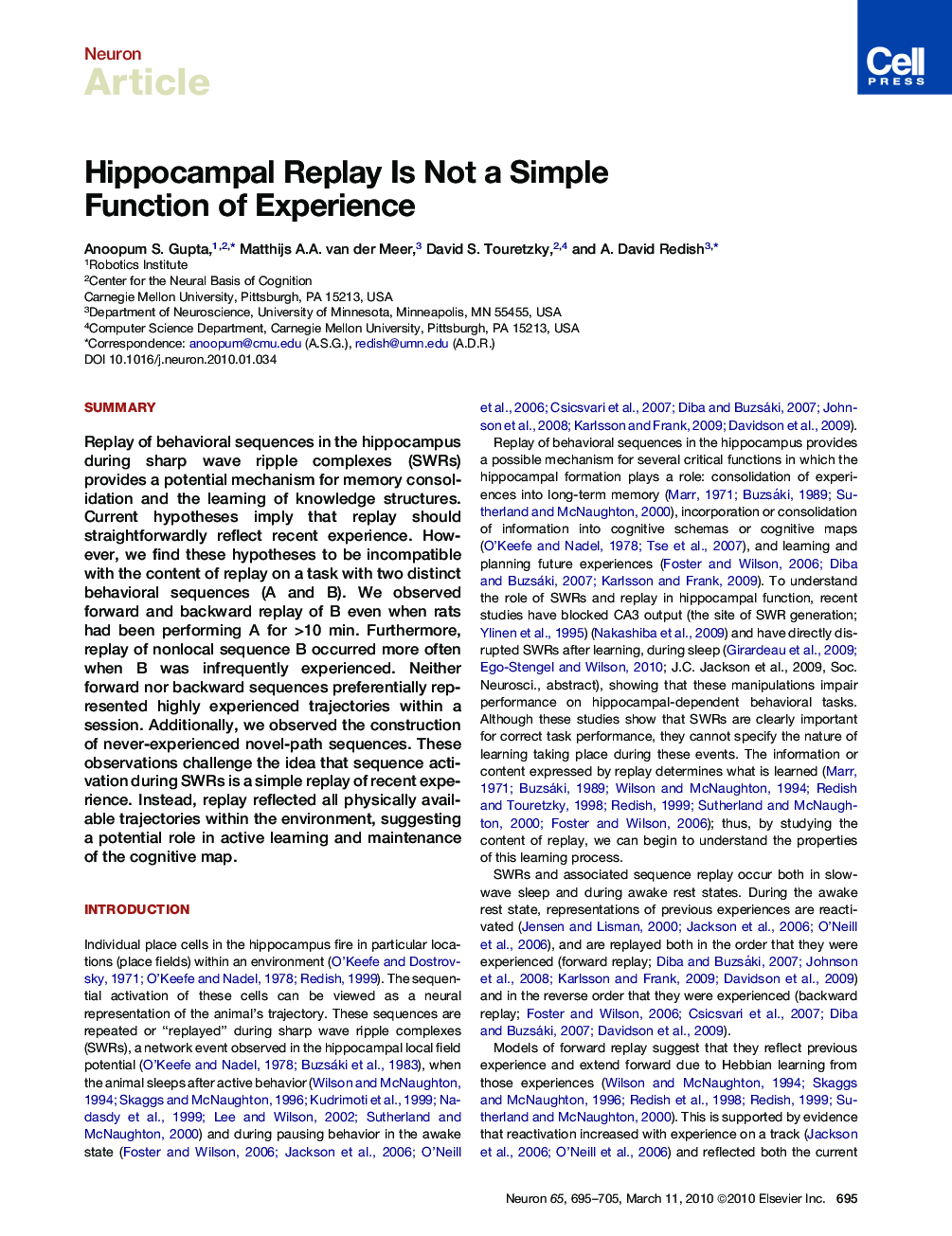| Article ID | Journal | Published Year | Pages | File Type |
|---|---|---|---|---|
| 4322560 | Neuron | 2010 | 11 Pages |
SummaryReplay of behavioral sequences in the hippocampus during sharp wave ripple complexes (SWRs) provides a potential mechanism for memory consolidation and the learning of knowledge structures. Current hypotheses imply that replay should straightforwardly reflect recent experience. However, we find these hypotheses to be incompatible with the content of replay on a task with two distinct behavioral sequences (A and B). We observed forward and backward replay of B even when rats had been performing A for >10 min. Furthermore, replay of nonlocal sequence B occurred more often when B was infrequently experienced. Neither forward nor backward sequences preferentially represented highly experienced trajectories within a session. Additionally, we observed the construction of never-experienced novel-path sequences. These observations challenge the idea that sequence activation during SWRs is a simple replay of recent experience. Instead, replay reflected all physically available trajectories within the environment, suggesting a potential role in active learning and maintenance of the cognitive map.
► Hippocampal replay content is inconsistent with current proposals for replay generation ► The content of hippocampal replay reflects the behavioral demands of the task ► “Replay” content includes never and rarely experienced shortcut trajectories ► Hippocampal replay may help in learning a cognitive map and prevent catastrophic interference
